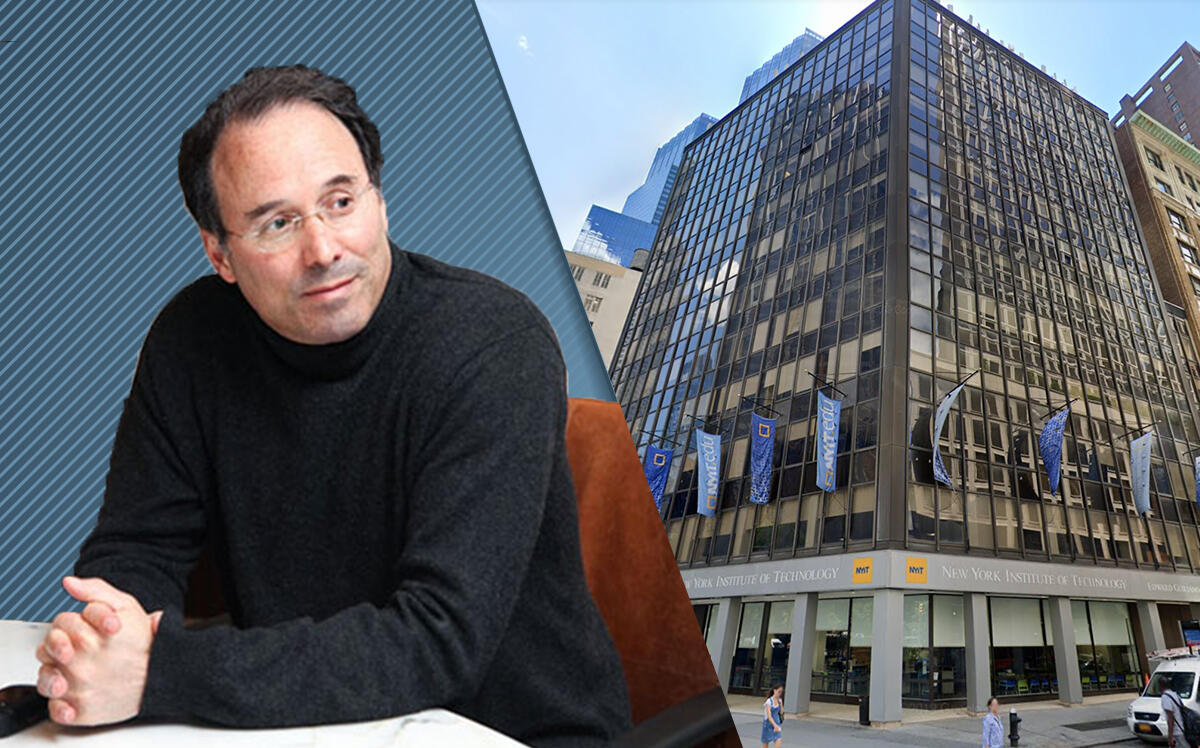 Gary Barnett assembling Columbus Circle development site
Gary Barnett assembling Columbus Circle development site
Trending
Extell’s Columbus Circle development dream is shrinking
Developer fights NY Institute of Technology to retrieve $4.5M deposit; leases adjacent parcel for $50M

Gary Barnett’s plans for an Upper West Side development site just north of Columbus Circle have been whittled down to a $50 million ground lease and a courtroom battle, at least for now.
Barnett’s firm, Extell Development, was reportedly trying to piece together a development site along Broadway, between West 60 and 61st streets.
But plans have been put on hold and alternative arrangements made amid an acrimonious legal battle with the New York Institute of Technology.
The issue between Extell and NYIT centers on the private research university’s efforts to hold on to a $4.5 million deposit the developer paid in 2019. That was part of a $90 million contract to acquire NYIT’s campus at 1855 Broadway, on the corner of West 61st Street.
As the two parties duke it out in court, Extell has moved ahead with making plans for one of the two adjacent parcels, inking a $49.5 million ground lease for 99 years at 17 West 60th Street this month, property records show.
The tenant is Shefa School, a nonprofit institution that serves students with language-based learning disabilities. Its lease of the vacant 76,500-square-foot building will allow the school to more than triple its footprint. To fund the project, Shefa landed $67.67 million in tax-exempt bond financing through Build NYC Resource Corporation. The New York Post first reported the deal.
The lease was executed eight months into Extell’s battle to recover its $4.5 million deposit from NYIT. The development company sued NYIT in January, accusing the university of engaging in a “bad-faith scheme” to retain the deposit and potentially extract another $9 million from Extell.
Read more
 Gary Barnett assembling Columbus Circle development site
Gary Barnett assembling Columbus Circle development site
 Gary Barnett site has one problem: the Podolsky brothers
Gary Barnett site has one problem: the Podolsky brothers
 Extell nabs $440M in financing for Midtown assemblage
Extell nabs $440M in financing for Midtown assemblage
The terms of the purchase contract, which the parties signed in September 2019, gave the university until October 2020 to terminate the sale without penalty. In that case, Extell would receive its initial $4.5 million deposit back. If the transaction was still moving ahead by fall 2020, Extell would pay NYIT an additional $9 million and the sale of the vacant campus would close between May 2021 and June 2022.
But after the pandemic began, NYIT was grappling with uncertainty and disclosed to both investors and its students that plans to relocate part of its Columbus Circle campus were on hold until spring 2021, according to Extell’s complaint. The developer’s team said it heard the school had abandoned its plans to leave 1855 Broadway from the university’s broker and a school official in the admissions office.
Despite those signs, NYIT did not inform the developer that its plans had changed. Instead, as the October 2020 deadline was looming, the university told the developer it was waiving its rights to terminate the contract and expected Extell to pay the additional $9 million deposit. “We look forward to closing,” an attorney for the school said in an October letter.
Extell said it was a calculated move that backed the developer into a corner, according to the suit it later filed.
The lawsuit alleged that NYIT knew if it pretended it was prepared to move forward with the sale contract, Extell “would have to decline to tie up another $9 million for nearly two years on an already-dead transaction.” NYIT could then take “the baseless position” that Extell breached the contract, according to the suit, and contend it was entitled to retain Extell’s original $4.5 million deposit.
In response, NYIT argued the sales contract does not require the university to take any steps to relocate its campus as a condition of the sale and that it was the developer who breached the contract and should, therefore, forgo the deposit.
It said Extell chose to “preemptively declare that it was free not to perform under the terms of the contract,” wrote NYIT’s lawyer. “That was a risk that [Extell] took.”
Extell declined to comment and a representative for NYIT’s legal team was not available. Oral arguments in the case are expected to be heard in September.




